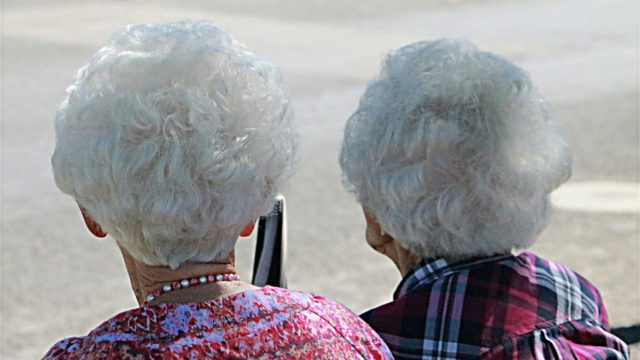
Coffee has become an integral part of our daily lives. Many of us can’t even imagine starting our day without a steaming cup of coffee. But do you know the fascinating history behind this popular beverage?
Origins of Coffee
The exact origin of coffee is uncertain, but it is believed to have been discovered in Ethiopia in the 13th century. Legend has it that a goat herder named Kaldi observed his goats behaving energetically after eating the red berries from a particular plant. This led him to try the berries himself, and he discovered their stimulating effects.
From Ethiopia, the knowledge of coffee spread to the Arab world, where it was first cultivated on a large scale. The Arabs made coffee a fundamental part of their culture and traded it extensively. By the 16th century, coffee had made its way to Europe, and its popularity quickly spread across the continent.
The Rise of Coffeehouses
In the 17th century, coffeehouses began to pop up in cities across Europe. They quickly became hubs for social activity, where people gathered to exchange information, discuss politics, play games, and drink coffee, not long before these establishments became important centers of intellectual and cultural exchange.
Coffeehouses significantly impacted the Enlightenment movement, which emerged in Europe in the 18th century. The free exchange of ideas in these cafes played a critical role in shaping the philosophy and culture of the period.
Modern Coffee Culture
Today, coffee is grown in countries around the world and enjoyed by millions of people every day. It has become the second most traded commodity on the planet, after oil. Coffee has also undergone significant changes in recent years. Specialty coffee shops have emerged that offer a wide variety of unique and carefully crafted blends. These shops have helped to create a new coffee culture that values quality and sustainability.
Comprehension Questions:
1. Where was coffee first discovered?
2. Who is credited with discovering coffee’s stimulating effects?
3. When did coffeehouses begin to appear across Europe?
4. What was the impact of coffeehouses on the Enlightenment?
5. What is the significance of specialty coffee shops?
Answers
1. Coffee was first discovered in Ethiopia.
2. A goat herder named Kaldi is credited with discovering coffee’s stimulating effects.
3. Coffeehouses began to appear across Europe in the 17th century.
4. Coffeehouses played a critical role in shaping the philosophy and culture of the Enlightenment.
5. Specialty coffee shops offer unique and carefully crafted blends and have helped to create a new coffee culture that values quality and sustainability.
コーヒーの魅惑的な歴史
コーヒーは私たちの日常生活に欠かせない存在となりました。多くの人々は、一日を熱いコーヒーのカップなしで始めることすら考えられません。しかし、この人気のある飲み物の興味深い歴史をご存知でしょうか?
コーヒーの起源
コーヒーの正確な起源は不明ですが、13世紀のエチオピアで発見されたとされています。伝説によると、山羊飼いのカルディという人物が、ある種の植物から採れる赤い実を食べた後、山羊たちが元気になる様子を観察しました。これが彼自身もその実を試すきっかけとなり、刺激的な効果を発見しました。
エチオピアから、コーヒーの知識はアラブ世界に広がり、初めて大規模に栽培されました。アラブ人はコーヒーを文化の基本的な一部とし、盛んに交易を行いました。16世紀には、コーヒーはヨーロッパにも伝わり、大陸全体で急速に人気が広がりました。
コーヒーハウスの興隆
17世紀になると、ヨーロッパ各地の都市にコーヒーハウスが登場し始めました。人々が情報交換や政治談議、ゲーム、そしてコーヒーを楽しむ場として、すぐに社交の中心地となりました。やがてこれらの施設は、知識や文化の交流の重要な拠点となりました。
コーヒーハウスは、18世紀にヨーロッパで起こった啓蒙運動に大きな影響を与えました。これらのカフェでの自由なアイデアの交換は、その時代の哲学や文化を形作る上で重要な役割を果たしました。
現代のコーヒーカルチャー
今日、コーヒーは世界中の国々で栽培され、毎日何百万人もの人々に楽しまれています。コーヒーは、石油に次ぐ世界で2番目に取引される商品となりました。近年、コーヒーは大きな変化を遂げています。特製コーヒーショップが登場し、ユニークで丁寧に作られたブレンドを豊富に提供しています。これらのショップは、品質と持続可能性を重視した新しいコーヒーカルチャーを創出する手助けとなっています。
内容理解問題:
1. コーヒーはどこで最初に発見されましたか?
2. コーヒーの刺激的な効果を発見したのは誰ですか?
3. ヨーロッパ各地にコーヒーハウスが現れ始めたのはいつですか?
4. コーヒーハウスは啓蒙運動にどのような影響を与えましたか?
5. スペシャリティコーヒーショップの重要性は何ですか?
解答
1. コーヒーは最初にエチオピアで発見されました。
2. 山羊飼いのカルディがコーヒーの刺激的な効果を発見したとされています。
3. コーヒーハウスは17世紀にヨーロッパ各地で現れ始めました。
4. コーヒーハウスは、啓蒙運動の哲学や文化を形作る上で重要な役割を果たしました。
5. スペシャリティコーヒーショップは、ユニークで丁寧に作られたブレンドを提供し、品質と持続可能性を重視した新しいコーヒーカルチャーの創出を支援しています。







